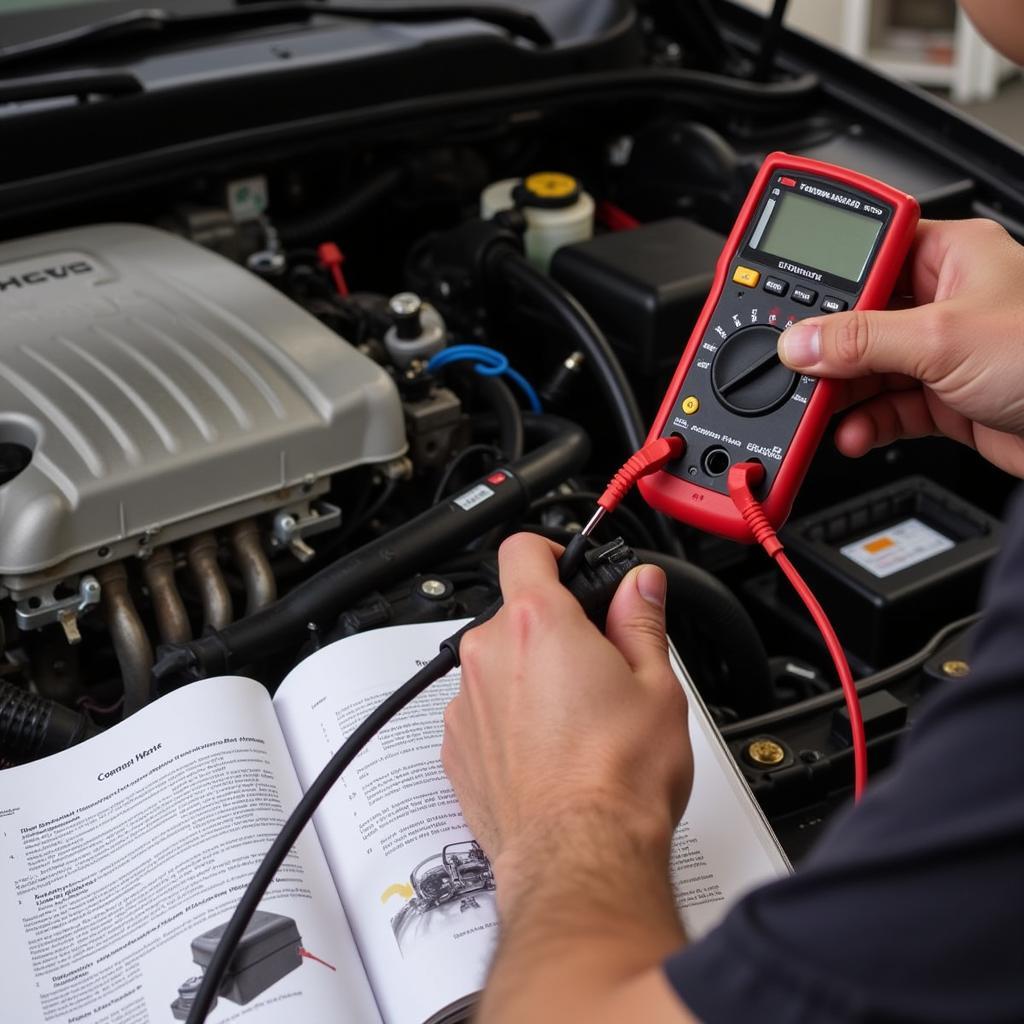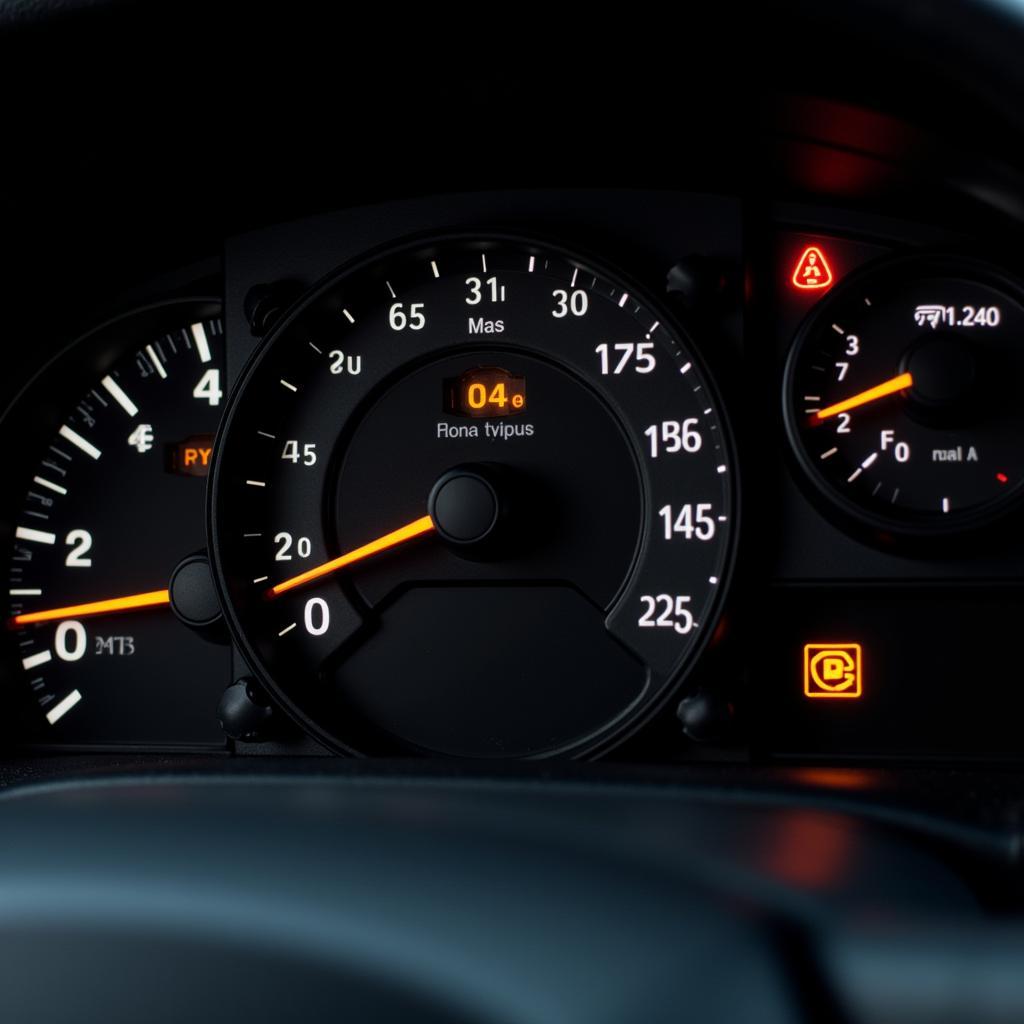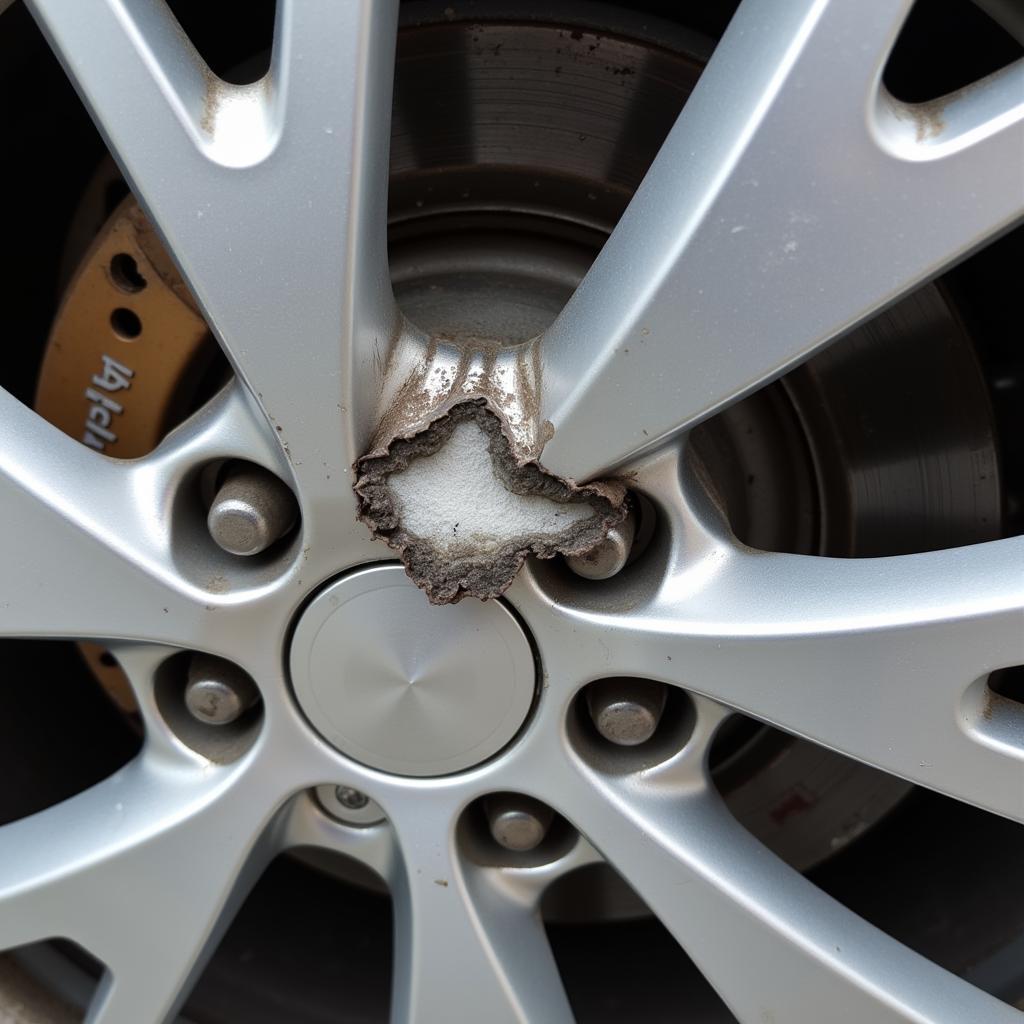A jumping, fluctuating, or unresponsive tachometer can be a frustrating issue, leaving you wondering about the health of your engine. This guide provides a comprehensive walkthrough on how to fix an erratic tachometer on your car, offering solutions from simple checks to more complex diagnoses.
Understanding why your tachometer is behaving erratically is crucial for an effective fix. The tachometer measures your engine’s RPM (Revolutions Per Minute) and a faulty reading can indicate a problem with the sensor, wiring, or even the instrument cluster itself. Let’s dive into the troubleshooting steps.
Initial Checks for an Erratic Tachometer
Begin with the easiest checks first. Sometimes, a loose connection is the culprit. Inspect the wiring connected to the tachometer. Look for any loose, corroded, or damaged wires. A simple cleaning or tightening might resolve the issue. Also, ensure the dashboard connections are secure. Sometimes, vibrations can loosen these connections over time. Similar to how a loose connection can cause an erratic tachometer, other electrical issues can also interfere with its readings. Check your battery terminals and make sure they are clean and tightly connected. A weak battery can cause all sorts of electrical gremlins.
Diagnosing the Tachometer Signal
The tachometer receives its signal from the ignition system. In older vehicles, this signal comes directly from the ignition coil. In newer cars, it’s typically sourced from the crankshaft position sensor or the camshaft position sensor. If the initial checks don’t resolve the issue, you need to investigate the signal source. A faulty sensor can send incorrect signals, leading to an erratic tachometer needle. A multimeter can be used to test the sensor’s output. Consult your car’s repair manual for the correct testing procedure and specifications.
 Testing Crankshaft Position Sensor with Multimeter
Testing Crankshaft Position Sensor with Multimeter
Instrument Cluster Issues and Advanced Troubleshooting
If the sensor and wiring appear to be in good condition, the problem might lie within the instrument cluster itself. A faulty tachometer gauge or a problem with the cluster’s circuitry can cause erratic readings. In some cases, a professional diagnosis may be necessary. They have specialized tools like diagnostic scanners that can pinpoint the exact issue. “A failing instrument cluster can exhibit various symptoms beyond a faulty tachometer,” explains automotive electrical expert, David Miller. “Flickering lights, inaccurate speedometer readings, and malfunctioning warning lights can all point towards a larger cluster issue.”
 Inspecting Car’s Instrument Cluster
Inspecting Car’s Instrument Cluster
Common Questions about Erratic Tachometers
Why is my tachometer needle jumping?
A jumping tachometer needle often indicates a faulty sensor, loose wiring, or a problem with the instrument cluster itself.
Can a bad ground cause a fluctuating tachometer?
Yes, a bad ground connection can disrupt the tachometer’s signal, causing fluctuations.
How do I test my car’s tachometer?
You can test the tachometer by checking the wiring, sensors, and instrument cluster, potentially using a multimeter following your car’s repair manual.
What is the most common cause of a faulty tachometer?
Loose or corroded wiring is one of the most common causes of a malfunctioning tachometer.
Should I drive with a broken tachometer?
While you can technically drive with a broken tachometer, it’s important to address the underlying issue as it could be a symptom of a larger electrical problem.
How much does it cost to fix an erratic tachometer?
The cost varies depending on the cause and can range from a simple DIY fix to a more expensive repair involving the instrument cluster.
Where can I find a reliable mechanic to fix my tachometer?
You can often find reputable mechanics through online reviews or referrals from friends and family.
Conclusion
Fixing an erratic tachometer involves a systematic approach, starting with simple checks and progressing to more advanced diagnostics. While some fixes might be easy DIY tasks, more complex issues may require professional help. “Remember, a properly functioning tachometer is essential for monitoring your engine’s performance,” adds Miller. “Addressing the issue promptly can prevent further damage and ensure the longevity of your vehicle.” If you’re still experiencing issues or need assistance, connect with us at AutoTipPro. Our team of experts is ready to help you resolve your car troubles. You can reach us at +1 (641) 206-8880 or visit our office at 500 N St Mary’s St, San Antonio, TX 78205, United States.





Leave a Reply